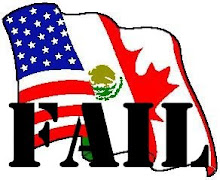A friend pointed me to a document on the US State Department’s website, which you can view here. The PDF lists the temporary business related travel that’s allowed under a Business Visitor Visa, or B-1. Scroll down the list, and we come to this:
Lecturer or Speaker
No salary or income from a U.S. based company/entity, other than expenses incidental to the visit. If honorarium will be received, activities can last no longer than nine days at any single institution or organization; payment must be offered by an institution or organization described in INA 212(g); honorarium is for services conducted for the benefit of the institution or entity; and visa applicant will not have accepted such payment or expenses from more than five institutions or organizations over the last six months.
Interesting…even more interesting when I look at my passport and realize I’ve been granted a B-1 before: when you declare that you’re speaking at the border, CBP officers can grant you a B-1 at that point without any additional paperwork. Apparently I was looking at the wrong thing when I attempted my trip to Tucson where I was to receive an honorarium for my talks; I assumed a TN status would cover speaking under NAFTA, but apparently the B-1 is the proper visa.
But therein lies the rub. While the US State Department may give you all the information you need to qualify for a visa, that alone doesn’t grant you access to the US. In fact, this page on the US State Department site states:
A visa allows a foreign citizen coming from abroad, to travel to the United States port-of entry and request permission to enter the U.S. Applicants should be aware that a visa does not guarantee entry into the United States. The Department of Homeland Security, U.S. Customs and Border Protection (CBP) officials have authority to permit or deny admission to the United States. (Underlining mine)
So basically the visa grants you permission to knock on the door and see if you can be let in, but it holds no promise on its own. So to answer the question I posed in an earlier post: yes, a Canadian speaker *can* speak in the US and, according to the US State Department’s documentation, *can* receive an honorarium for speaking. But its up to you to provide the answer as to why an American can’t fill the role you’ll be performing, as that may ultimately be what determines your entry.
[Update April 22/2009]
I was curious about what the INA 212(g) mentioned in the US Dept of State’s document on Business Visas that I referenced earlier was. INA seems to be a common acronym for the Immigration and Nationality Act. The website for US Citizenship and Immigration Services has a page devoted to it, but unfortunately the link on the page to actually view the act displays a “document not found” message (or at least it did when I tried to access it…let me know if anyone notices its available).
I did some Googling, and found what looks like the 212 section of the INA…but the subject matter doesn’t match the context of the business visa document; instead of listing institutions and organizations that can pay a speaker, it talks about aliens ineligible to receive visas and ineligible for admission. The subsections denoted with a (G) have nothing to do with the USDoS reference either. So…? Is there another document used with an INA acronym, or perhaps the INA document has changed and the reference in the state department’s pdf is inaccurate?
[End of Update]




No comments:
Post a Comment